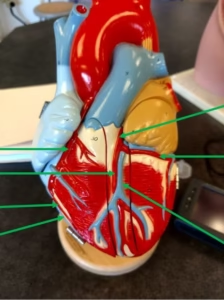“7 Essential Facts About Prevalent Heart Diseases and How to Prevent Them
Prevalent Heart Diseases and Their Prevention: Protecting Your Most Vital Organ
Your heart beats about 100,000 times a day—let’s make sure it keeps beating strong for years to come.

Why Heart Health Matters More Than Ever
Cardiovascular diseases remain the number one cause of death globally, claiming nearly 18 million lives each year. But here’s the hopeful truth—up to 80% of premature heart disease and stroke can be prevented through lifestyle changes and proper management.
In this comprehensive guide, we’ll explore:
- The most common and dangerous heart conditions
- Warning signs you should never ignore
- Evidence-based prevention strategies
- Cutting-edge approaches to heart health
- Real-life success stories of cardiovascular recovery
Heart Disease by the Numbers
- ➤ Someone has a heart attack every 40 seconds in the U.S.
- ➤ Cardiovascular diseases cost the U.S. about $219 billion annually
- ➤ 47% of Americans have at least 1 of 3 key risk factors (high blood pressure, high cholesterol, smoking)
Source: CDC Heart Disease Facts
The 8 Most Prevalent Heart Diseases
1. Coronary Artery Disease (CAD)

The most common heart disease occurs when cholesterol plaques build up in coronary arteries. According to the American Heart Association, CAD causes about 1 in 7 deaths in the U.S.
Symptoms:
- Chest pain (angina)—often described as pressure or squeezing
- Shortness of breath
- Fatigue with exertion
- Heart attack in severe cases
2. Heart Attack (Myocardial Infarction)
Occurs when blood flow to part of the heart is blocked, often by a blood clot. Time is muscle—every minute counts during a heart attack.
Warning Signs:
- Chest discomfort lasting more than a few minutes
- Pain spreading to shoulder, arm, back, neck or jaw
- Cold sweat, nausea, lightheadedness
- Women often experience: Shortness of breath, nausea/vomiting, back or jaw pain
🚨 Heart Attack Emergency Response
- Call emergency services immediately
- Chew and swallow aspirin (unless allergic)
- Stay calm and rest while waiting for help
Proven Prevention Strategies That Work
The Heart-Healthy Diet

Research from the NIH shows dietary changes can reduce heart disease risk by 30%.
Foods to Embrace:
- Fatty fish: Salmon, mackerel, sardines (rich in omega-3s)
- Colorful vegetables: Especially leafy greens
- Whole grains: Oats, quinoa, brown rice
- Healthy fats: Olive oil, avocados, nuts
- Berries: Packed with antioxidants
Foods to Limit:
- Processed meats (bacon, sausages, deli meats)
- Trans fats (found in many fried and baked goods)
- Added sugars and refined carbohydrates
- Excess salt (aim for <2,300mg sodium daily)
The Power of Movement
The American Heart Association recommends at least 150 minutes of moderate exercise weekly.
Best Exercises for Heart Health:
- Brisk walking (3-4 mph)
- Swimming or water aerobics
- Cycling (stationary or outdoor)
- Dancing
- Yoga (for stress reduction)
Sample Weekly Plan:
- Mon: 30-min brisk walk
- Tue: 20-min strength training
- Wed: 30-min cycling
- Thu: Rest or gentle yoga
- Fri: 30-min swim
- Sat: 45-min hike
- Sun: Active recovery
Top 15 Powerful Herbs
Top 15 Powerful Herbs for Managing Chronic and Incurable Diseases
Cutting-Edge Heart Health Research
Scientists are making remarkable discoveries about cardiovascular health:
1. The Gut-Heart Connection
New research published in Nature Medicine suggests gut microbiome diversity significantly impacts heart disease risk.
2. Wearable Technology Advancements
Modern smartwatches can now detect atrial fibrillation with 97% accuracy, according to a NEJM study.
3. Personalized Medicine
Genetic testing allows for customized prevention plans based on individual risk factors.

Real People, Real Heart Health Transformations
Maria’s Story: Reversing CAD at 58
“After my diagnosis, I committed to walking daily and adopting a plant-based diet. One year later, my cardiologist couldn’t believe the plaque reduction in my arteries!”
James’ Journey: From Heart Attack to Marathon
“At 47, I had a massive heart attack. Today, five years later, I’ve completed three marathons. Change is possible at any stage.”
Your 30-Day Heart Health Jumpstart Plan
| Week | Nutrition Focus | Activity Goal | Wellness Practice |
|---|---|---|---|
| 1 | Add 2 vegetable servings daily | Walk 15 min/day | Track blood pressure |
| 2 | Replace processed snacks with nuts/fruit | Increase to 20 min/day | Practice stress-reduction breathing |
| 3 | Try 2 meatless meals | Add 2 strength sessions | Improve sleep routine |
| 4 | Reduce added sugars by 50% | 30 min activity daily | Schedule doctor visit |
Share this content:





